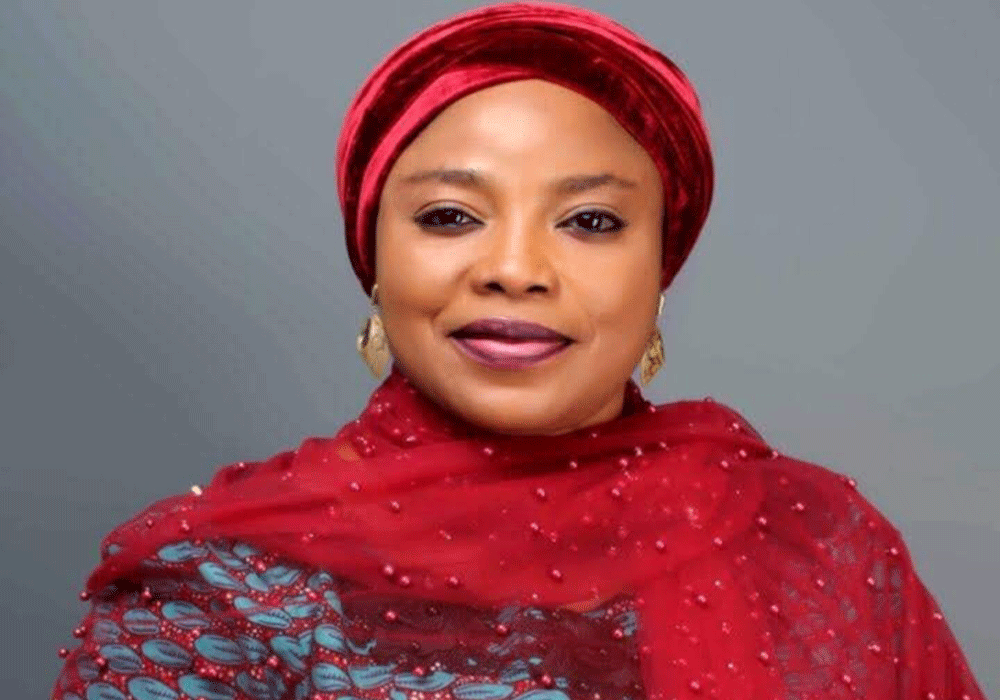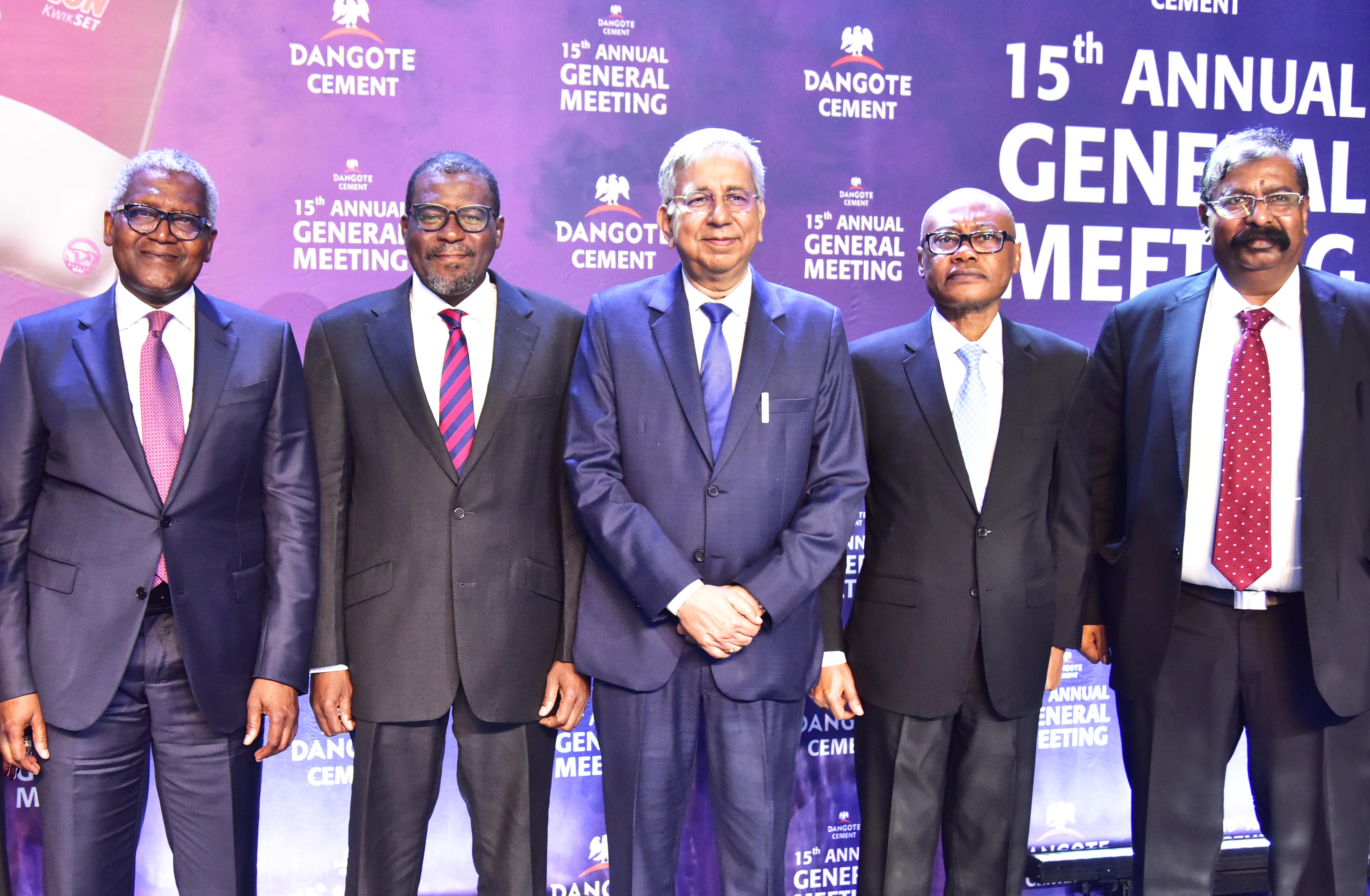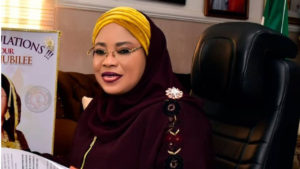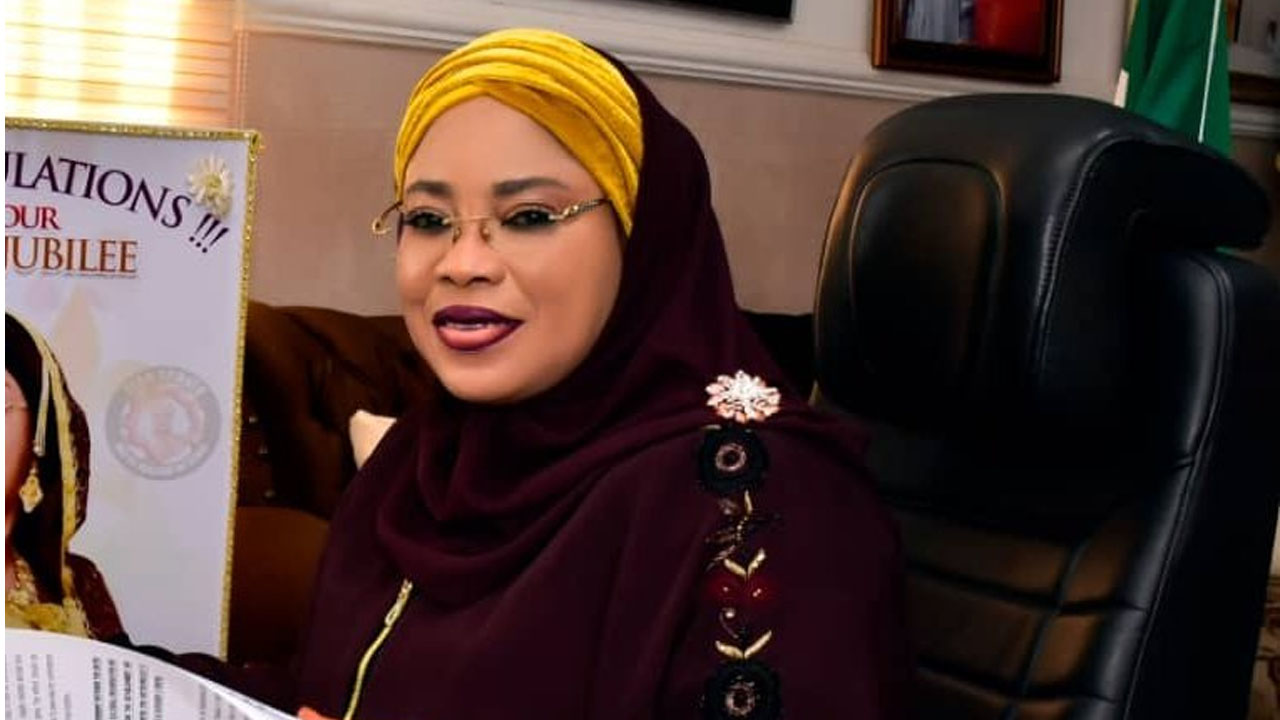Business
FCT minister acknowledges Livestock sector as Nigeria’s 2nd leading revenue earner

By John Danjuma
FCT Minister of State, Dr Ramatu Tijjani Aliyu, has indicated that the livestock sector has the capacity to become Nigeria’s second leading revenue earner if the right structures are put in place.
A statement by her special adviser on media Austine Elemue quoted the minister to have given the indication at the commencement of the vaccination campaign against trans boundary Animal Diseases in the North Central Zone of Nigeria, organised by the Federal Ministry of Agriculture and Rural Development.
Represented by the FCTA Permanent Secretary, Mr Olusade Adesola, Aliyu also noted that livestock has enormous economic value as an avenue for wealth and job creation for thousands of Nigerians.
She, however,, commended President Muhammadu Buhari for his foresight in approving the nationwide vaccination exercise, noting that it was a well thought out initiative that would give a further push to efforts to diversify the Nigerian economy.
It will also enhance sustainable development and guarantee food security, the minister explained further.
The minister pointed out that FCT which has a rapidly growing livestock population, this challenged mostly by outbreaks and the spread of animal diseases, exacerbated by age-long nomadic livestock practices as well as increasing transboundary/migration of livestock without any form of control.
“This situation has made it difficult for farmers to access quality animal health care, resulting in the loss of up to 40 –50 percent of animal stock by farmers thereby increasing the risks of transmission,” she stressed.
While commending the Federal Ministry of Agriculture & Rural Development (FMARD), Nigeria Veterinary Medical Association (NVMA) and other critical stakeholders for their relentless fight against the outbreak and spread of animal diseases, shover the years, e, however, stated that the donation of 47,000 doses of vaccines by the Ministry of Agriculture and Rural Development has further strengthened the capacity to combat animal diseases in the FCT.
Read Also >> Cash Crunch Hunts FCT With Shortfall In Allocation From NN59b To N13.5b – FCT Minister
lieu, therefore reiterated the determination of the FCT Administration towards repositioning the livestock sector, stressing that the Administration has currently developed a 10-year Livestock Development Plan (2022-2032) to provide the necessary framework for implementation of developmental programmes for the sector in the Territory.
The minister, called on livestock farmers in the north-central zone to cooperate with the veterinary health officials who would be deployed to the field to carry out this exercise, just as she assured that the Administration would on its part, put every measure in place to ensure that no part of the FCT is left out in the exercise.
Earlier, the Mandate Secretary, Agriculture and Rural Development Secretariat, Mallam Abubakar Ibrahim, noted that animal vaccination has been the safest and most effective means to prevent the outbreak and spread of animal diseases.
Ibrahim commended the FCT Minister of State for her continued support for the livestock sector in the territory, adding that her approval for the convening of monthly clinical interaction by veterinary health practitioners, the upgrade of veterinary clinics as well as the institution of a community engagement initiative to identify and resolve all the contentions issues between the host communities and farmers in the grazing reserves are yielding fruitful results.
He expressed the optimism that as more and more farmers settle at the reserves, transboundary movement of livestock would be reduced with farmers having enhanced access to quality animal healthcare for their animals.
Others who spoke at the event include the Chief Veterinary Officer of Nigeria, Dr Maimuma Abdullahi Habib, Leader of the Miyett-Allah Cattle Breeders Association, and Sheep and Goat Farmers Association amongst others.
Business
Sustainability: CDP Rates Dangote Cement High On Climate Change, Water Security

The Dangote Cement Plc (DCP) has achieved a ‘B’ score in climate change and water security disclosures according to the recently released 2024 Carbon Disclosure Project (CDP) results.
The CDP is the world’s largest, most comprehensive dataset on environmental action which empowers investors, companies, cities, and national and regional governments to make earth-positive decisions.
It was gathered that Dangote Cement has disclosed its environmental practices annually through the CDP since 2018.
On its part, the CDP provides a voluntary framework for companies to report on Climate, Water Security, and Forests. It rigorously evaluates corporate environmental performance, assigning scores from A to D based on companies’ transparency, governance, and measurable actions towards sustainability. Following the release of company scores in February, Dangote Cement’s score on water security which was C was upgraded to B. Similarly, the company’s commitment to supporting a climate resilient future was also demonstrated in its climate change score of B in 2024.
ALSO READ: ADF Spreads Palliatives To 10 States
On the new rating, Managing Director/Chief Executive, Dangote Cement, Arvind Pathak, said, “Dangote Cement leads in Africa as one of few businesses in six states and regions of Africa to disclose through CDP.”
He further stated that “the 2024 score is an outcome of ongoing efforts to reduce our carbon footprint, accelerate climate action and promote sustainability across our business and its value chain.”
On his part, the Head, Sustainability, Dangote Cement, Dr. Igazeuma Okoroba, expressed gratitude to all stakeholders who aligned with the Group’s Environmental, Social, and Governance (ESG) strategy overseen by the company’s Board which supported the achievement of an improved rating this year.
She asserted that “this year’s results are evidence that our contribution to create a world where people, planet and profit are truly balanced is paying off.”
Affirming the company’s commitment to decarbonisation, Dr Igazeuma stated that “Although this year’s score demonstrates our transparency on sustainability, DCP’s goal is to go beyond disclosure and take meaningful action through tangible solutions, innovations, and projects to close the gap between ambition and reality.”
Dangote Cement Plc is sub-Saharan Africa’s largest cement producer with an installed capacity of 45.6Mta across 10 African countries and operates a fully integrated “quarry-to customer” business with activities in manufacturing, sales, and distribution of cement. The company is on track to meet its decarbonisation targets through energy efficiency measures, adoption of supplementary cement materials, carbon offsets and other sustainable practices.
Business
Nothing Is Impossible, Dangote To Harvard Scholars

Young entrepreneurs and scholars have been urged to rise above limitations and push their ambitions to help transform the world into a better place.
The President/Chief Executive, Dangote Industries Limited, Aliko Dangote, gave the charge in Lagos last Wednesday when a delegation of Harvard Kennedy School scholars visited the Dangote Petroleum Refinery & Petrochemicals complex and Dangote Fertiliser Limited in Ibeju Lekki, Lagos.
Addressing the 50 scholars, representing 18 different nationalities from across the globe, Dangote emphasised the importance of being driven by ambition and a ‘can-do’ spirit, as exemplified by the Dangote Group in constructing the world’s largest single-train refinery.
He stressed that ambition should be paired with a desire to create a legacy and make an impact, not simply for profit.
ALSO READ: Okpebholo Stands With Tinubu On Rivers State
“Life is not worth living without ambition. In this life, nothing is impossible. Don’t allow fear to hold you back. Be knowledgeable about the business you want to pursue. I am not an engineer, but I don’t engage in any business I don’t understand,” he said.
Dangote, who spent over 40 minutes answering questions from the scholars, recalled being advised against building the refinery, as many argued that such mega projects were only feasible for sovereign nations, not individuals.
He shared that, during the COVID-19 pandemic, the company had to find ways to sustain the project.
He also noted that the ingenuity involved in constructing a world-class refinery, which meets global best practices, produces Euro V products, and is capable of processing over 100 different types of crude oil, has kept it running despite shortage of Nigerian crude oil.
Vice President, Oil & Gas, Dangote Group, Edwin Devakumar, explained that building the 650,000-barrel-per-day refinery was a monumental feat that required immense courage, vision, and determination.
He pointed out that the group acted as its own Engineering, Procurement, and Construction (EPC) contractor for the project – a refinery with a capacity of 650,000 barrels per day – a feat that had never been attempted before.
“Our Group President has a plaque in his office that reads, ‘nothing is impossible.’ This is the mindset he instilled in us when faced with challenges. He does not accept impossibilities and always aims for excellence. This approach was the same when we revolutionised the cement industry in Nigeria. We turned the country from one of the largest importers of cement into a net exporter. Today, after decades of depending on imported refined products, we now have the capacity to meet all of Nigeria’s refined product demands, with surplus supplies of jet A1, gasoline, and diesel for export. Other products from the refinery include polypropylene, carbon black feedstock, and sulphur,” he said.
Devakumar highlighted the significant investments made to realise the project, including dredging 65 million cubic metres of sand to raise the height of the site by 1.5 metres to safeguard against potential sea level rises due to global warming. The group also procured 330 cranes and lifting equipment due to the lack of local capacity, built the world’s largest granite quarry to supply materials such as coarse aggregates, stone columns, and stone dust, and constructed the refinery on 250,000 piles – potentially the largest number ever used for a single project.
The scholars, who toured the magnificent complexes, were in awe and praised Dangote for his ambitious vision, which seeks to address global needs. They commended him as an inspiration and entrepreneurial genius, with many describing the visit to the refinery as the highlight of their tour, which also included stops in Ghana and Abuja.
Sheffy Kolade, leader of the Harvard Kennedy School student-led Nigeria-Ghana Trek and a global advisor for the Women for Prosperity project with the Atlantic Council’s Freedom and Prosperity Center, said that the Dangote Group symbolises Nigeria’s resilience and economic transformation.
“I want to start by saying that the Dangote Group is not just a business. It is a symbol of Nigeria’s resilience. It is a symbol of the bright future that lies ahead for us. It represents the extraordinary achievements possible when we put our minds to something. I am happy that we are here to witness the economic progress happening in Nigeria. We’ve seen the largest single-train refinery in the world, and we’ve visited a fertiliser plant that exports to South America and the US,” she said.
A social entrepreneur and a member of the Forbes Business Council, Kolade added, “From where we are standing, thousands of people earn their daily livelihood. This business has created numerous jobs and energy security for our country. It has reduced our reliance on imported petroleum products, and, of course, it is increasing our foreign reserves. I want to thank you, sir, for everything you’re doing for our country and for Africa. We appreciate it. It’s truly inspiring for us.”
On her team and their mission at the refinery, Kolade noted, “My team consists of 50 people from 18 different nationalities. We have people from nearly every continent. We are a blend of policy, business, sustainability, and development-minded individuals, most of whom are from the Harvard Kennedy School. There’s one from the Harvard Business School, one from Harvard Public Health, and others pursuing joint degrees with Harvard, Stanford, and MIT. We are all curious-minded people who value impact, sustainability, and progress.”
Another member of the team, Darrow Merton, a Foreign Service Officer with the United States, described Dangote’s vision and resilience as an inspiration to entrepreneurs. He praised Dangote for not only breaking barriers to build the refinery but also for his ability to provide innovative solutions in the face of adversity.
Business
Global Money Week: NGX, CBN, MinieMoney Preach Financial Literacy To Students

As part of activities in commemoration of the 2025 Global Money Week, the Nigerian Exchange Group (NGX Group) collaborated with the Central Bank of Nigeria (CBN) and MinieMoney to empower over 200 students with essential financial literacy skills.
Biztellers reports that the initiative underscores a shared commitment to fostering financial inclusion and equipping young Nigerians with the knowledge required for long-term financial well-being.
The event convened students from leading schools, including Vivian Fowler Memorial College for Girls, Dansol High School, Kith and Kin Educational Schools, Caleb British International School, Lagos Preparatory and Secondary School, and The Bells Comprehensive Secondary School.
ALSO READ: Tinubu Swears In Ibas As Rivers Sole Administrator
The participants engaged in insightful discussions on financial literacy, investment strategies, and capital market operations, with the added opportunity to experience firsthand the dynamics of the NGX trading floor.
Now in its 13th edition, Global Money Week is a global initiative designed to promote financial education among young people, ensuring they develop the critical thinking skills needed to make informed financial decisions. The 2025 theme, “Think Before You Follow, Wise Money Tomorrow,” reinforces the importance of strategic financial planning from an early age.
At the event, Head of Trading and Products at NGX, Abimbola Babalola, highlighted the transformative power of financial literacy in shaping students’ futures.
“The financial choices you make today will determine the quality of your life tomorrow. Understanding saving, investing, and responsible money management early on will put you on the path to financial success,” he stated.
On his part, Assistant Director of the Consumer Protection Department at CBN, Christian Mordi, introduced the CBN’s ‘Sabi Money’ platform, designed to enhance financial education nationwide.
“Financial literacy extends beyond numbers; it is about developing discipline, patience, and informed decision-making skills that foster economic security,” he noted.
Similarly, the CEO, MinieMoney, Gbolahan Faniran, emphasized the importance of early investment habits and leveraging the power of compound interest. “Achieving financial success is not about following trends but about making intentional money choices today that ensure a secure future,” he said.
Beyond this event, the NGX Group continues to champion financial literacy through strategic initiatives, including its X-Academy, which provides tailored financial education programs, and the NGX StockTown, a comic book series designed to educate young people through engaging storytelling.
Through partnerships like these, NGX Group remain steadfast in its commitment to raising a generation of financially literate and empowered individuals. By equipping students with essential financial knowledge today, the initiative lays the foundation for informed decision-making and long-term wealth creation, ensuring a more financially inclusive future.
















